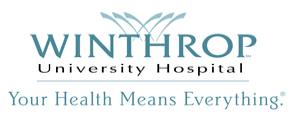Anti-inflammatory Agents and Cholesterol Metabolism
| Status: | Recruiting |
|---|---|
| Conditions: | Arthritis, Osteoarthritis (OA) |
| Therapuetic Areas: | Rheumatology |
| Healthy: | No |
| Age Range: | 40 - 70 |
| Updated: | 5/3/2018 |
| Start Date: | November 2010 |
| End Date: | March 2019 |
| Contact: | Allison B Reiss, MD |
| Email: | areiss@winthrop.org |
| Phone: | 516-663-3455 |
Impact of Anti-inflammatory Agents on Cholesterol Metabolism and Atherogenic Potency of Patient Plasma
We hypothesize that administration of anti-inflammatory medications such as celecoxib,
naprosyn and diclofenac will cause changes in the blood plasma and white blood cells of
patients such that they will be less able to efficiently process cholesterol.
naprosyn and diclofenac will cause changes in the blood plasma and white blood cells of
patients such that they will be less able to efficiently process cholesterol.
Drugs that inhibit cyclooxygenase (COX) are frequently administered to relieve pain and
inflammation, but have been associated with cardiovascular (CV) toxicity and an elevated risk
of acute myocardial infarction. We have demonstrated that drugs that inhibit the COX-2
isoform act to interfere with cellular cholesterol movement by suppressing expression of
proteins that facilitate efflux of cholesterol as well as by enhancing expression of
scavenger receptors that mediate cholesterol uptake. We further showed that in cultured THP-1
human macrophages, COX-2 inhibition with drugs (celecoxib, NS398) or by COX-2 RNA silencing
leads to foam cell transformation, a critical component of atherogenesis. Thus, COX-2
inhibitors act in a pro-atherogenic fashion on a series of genes which we have named the
"Cholesterol Metabolic Signature." Alterations in this signature may contribute to heightened
risk of development of atherosclerotic CV disease associated with prolonged use of this drug
class. COX enzyme activity supports cholesterol homeostasis through catalysis of
prostaglandin (PG) production, and we have shown in vitro that specific subsets of these PGs
(PGD2 or PGE2) are sufficient to maintain balance. The aims of this project is: In an
observational study of persons with pharmacologic COX-2 selective inhibition (celecoxib) or
COX-1/2 inhibition (naproxen, diclofenac), document treatment effects on the Cholesterol
Metabolic Signature in isolated subject mononuclear cells and in naïve THP-1
monocytes/macrophages exposed to subject plasma. This will allow detection of variations in
degree of pro-atherogenic response of the Cholesterol Metabolic Signature to COX inhibition
within human patients that may be associated with a higher likelihood of developing CV
sequelae. Understanding the nature of the association between COX inhibition and cholesterol
metabolism, and the extent to which they may promote atherosclerotic CV disease, is of
critical importance in developing analgesic and anti-inflammatory medications with a more
favorable risk profile. The knowledge gained may also improve clinical decision-making by
identifying subsets of patients most vulnerable to adverse CV effects of COX inhibition.
inflammation, but have been associated with cardiovascular (CV) toxicity and an elevated risk
of acute myocardial infarction. We have demonstrated that drugs that inhibit the COX-2
isoform act to interfere with cellular cholesterol movement by suppressing expression of
proteins that facilitate efflux of cholesterol as well as by enhancing expression of
scavenger receptors that mediate cholesterol uptake. We further showed that in cultured THP-1
human macrophages, COX-2 inhibition with drugs (celecoxib, NS398) or by COX-2 RNA silencing
leads to foam cell transformation, a critical component of atherogenesis. Thus, COX-2
inhibitors act in a pro-atherogenic fashion on a series of genes which we have named the
"Cholesterol Metabolic Signature." Alterations in this signature may contribute to heightened
risk of development of atherosclerotic CV disease associated with prolonged use of this drug
class. COX enzyme activity supports cholesterol homeostasis through catalysis of
prostaglandin (PG) production, and we have shown in vitro that specific subsets of these PGs
(PGD2 or PGE2) are sufficient to maintain balance. The aims of this project is: In an
observational study of persons with pharmacologic COX-2 selective inhibition (celecoxib) or
COX-1/2 inhibition (naproxen, diclofenac), document treatment effects on the Cholesterol
Metabolic Signature in isolated subject mononuclear cells and in naïve THP-1
monocytes/macrophages exposed to subject plasma. This will allow detection of variations in
degree of pro-atherogenic response of the Cholesterol Metabolic Signature to COX inhibition
within human patients that may be associated with a higher likelihood of developing CV
sequelae. Understanding the nature of the association between COX inhibition and cholesterol
metabolism, and the extent to which they may promote atherosclerotic CV disease, is of
critical importance in developing analgesic and anti-inflammatory medications with a more
favorable risk profile. The knowledge gained may also improve clinical decision-making by
identifying subsets of patients most vulnerable to adverse CV effects of COX inhibition.
Inclusion Criteria:
- Age 40-70, osteoarthritis, male or female
Exclusion Criteria:
- other known autoimmune or inflammatory rheumatic conditions, renal disease, current or
recent (>1 month) corticosteroid or statin treatment, contraindications to medication
(i.e. those taking oral anticoagulants, e.g. warfarin), those pregnant or trying to
become pregnant or breastfeeding. Participants will not have consumed any medications
containing aspirin or other NSAIDs for at least 2 weeks before the trial.
We found this trial at
1
site
Winthrop University Hospital Founded in 1896 by a group of local physicians and concerned citizens,...
Click here to add this to my saved trials
